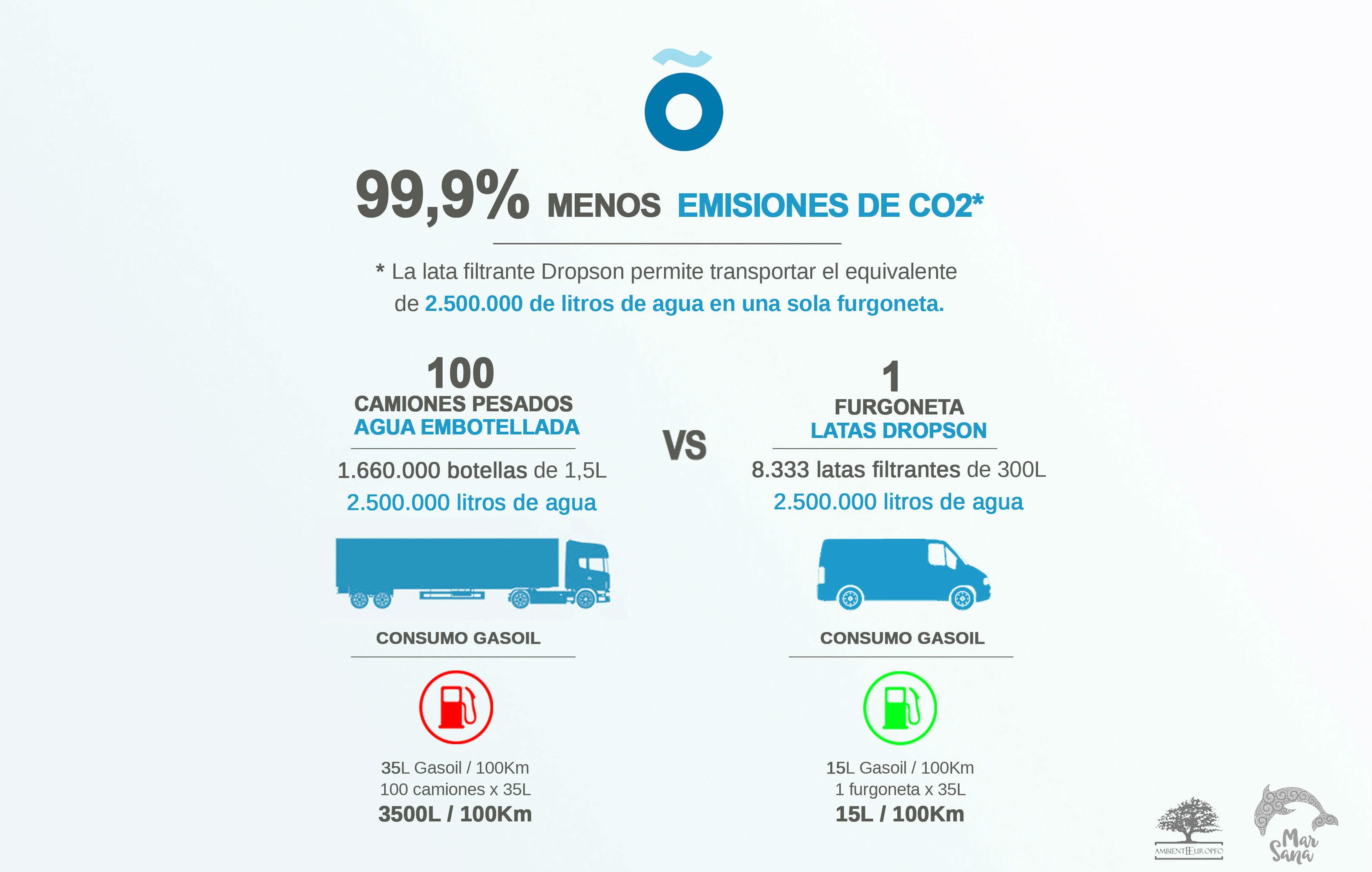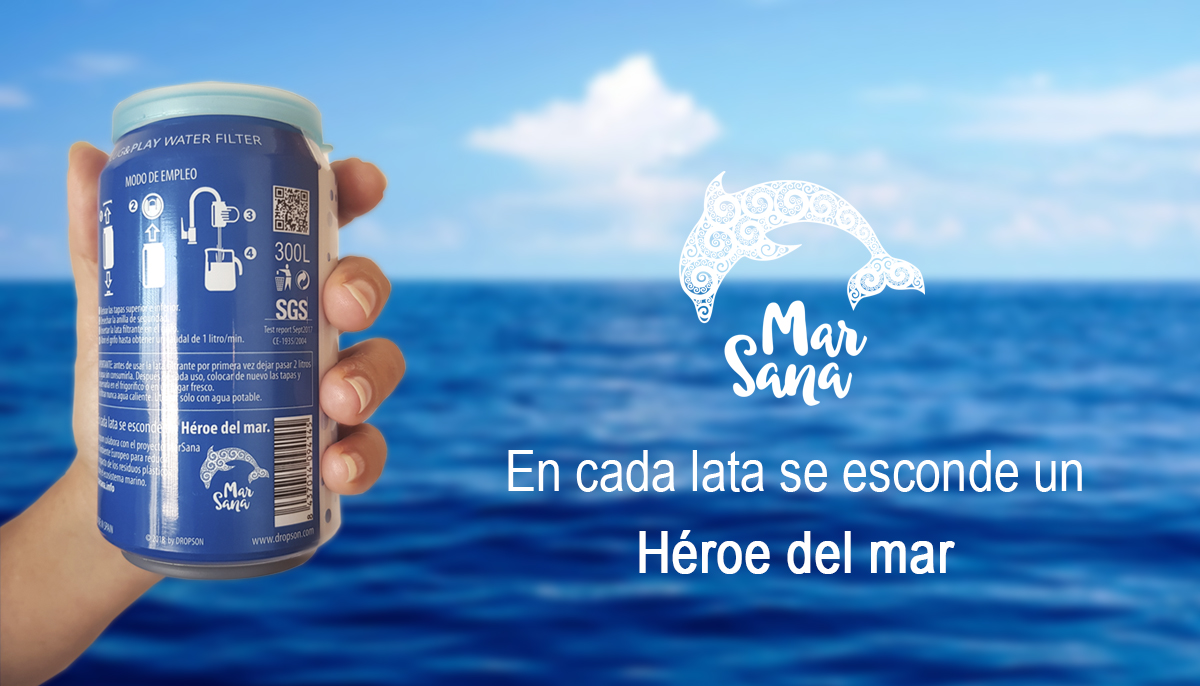Dropson committed to Sustainable Development Goals

THE 2030 AGENDA FOR SUSTAINABLE DEVELOPMENT
On September 25, 2015, the 193 world leaders who make up the United Nations General Assembly, at a summit held in New York, approved an initiative known by the acronym SDG (Sustainable Development Goals), a set of global goals to eradicate poverty, protect the planet and ensure prosperity for all as part of a new sustainable development agenda: Agenda 2030.
17 goals itemized into 169 specific purposes to be achieved over the next 15 years, including challenges such as climate change, economic inequality, innovation, sustainable consumption, peace and justice among other priorities.
A universal agenda with national and global obligations for all countries, with interrelated and mutually reinforcing goals that, if implemented together, can promote prosperity and security for the present and future generations.
.
DROPSON COMMITTED TO THE SDG
The role of companies and their contribution to the SDG is vital to achieve the totality of commitments and the only way to generate real change in all areas. It is important to apply CSR policies in order to act responsibly without damaging the environment with the business activity, aligning them with the company’s values and incorporating them into every element of the value chain.
In this way, Dropson is committed and achieves various goals of the different objectives that fall within its competence.
Sources: ANEABE, ONU, GREENPEACE, Asociación Ambiente Europeo and Head of Water Quality of Municipal Waters of Alicante.
.
SDG 6. CLEAN WATER AND SANITATION
Companies are responsible for the 90% of the world’s water consumption, so they must incorporate strategies to avoid depletion and pollution.
Although three quarters of the planet is water, the amount of freshwater is limited. A 97% is salty, and a good portion of fresh water is frozen, so the available fresh water we have is 1%. The challenge of sustainability is to use this resource optimally, and respond to this challenge requires considering the water cycle from extraction to reuse or waste, trying to minimize possible losses and making a sustainable consumption of water.
It is vital to change the way we see drinking water. Every minute a million plastic bottles are bought worldwide. Their production (for every litre that is produced, between 2 and 3 litres of additional water are discarded) and the effort to eliminate them completely have a huge environmental impact.
The Dropson filter can adds value to tap water by offering excellent quality filtered water with good taste. With just one can (87g of plastic) you can have 300L of water instantly, the equivalent of 200 plastic bottles of 1.5L of water and a total of 7kg of plastic.
.
SDG 9. INDUSTRY, INNOVATION AND INFRASTRUCTURE
This objective recognises the importance of infrastructure, industrialisation and innovation for sustainable development.
In this way, Dropson has an internal engineering department to manufacture its own machines and has the formulas to create its products, trying to internalize as many processes as possible in production.
Dropson works with local companies and in its business plan is the challenge to implement and create this same machinery and this work model in other countries where Dropson operates in order to manufacture the product and avoid the transport of it.
.
SDG 12. RESPONSIBLE PRODUCTION AND CONSUMPTION
Companies use a large amount of natural resources (food, raw materials, water, energy…) to carry out their activities, causing these resources to be used at a rate higher than their replacement rate, which can lead into depletion.
The consumption of resources is associated with the creation of waste, in many cases toxic, so it is important that business models evolve towards a concept of circular, respectful and sustainable economy.
Dropson has created a biodegradable and 100% recyclable product. Its interior is composed of a 100% natural membrane based on vegetable fibers, without any chemicals and its exterior is made of 87gr of plastic that replaces or avoids 200 plastic bottles of 1.5L of water and a total of 7kg of plastic.

.
SDG 13. CLIMATE ACTION
In Spain, business activity is responsible for almost 80% of greenhouse gas emissions. The origin of CO2 emissions mainly comes from manufacturing industry, energy supply and transport.
Companies have the responsibility to focus on reducing their emissions throughout the value chain.
The Dropson filter can has been developed as a sustainable alternative to bottled water, both by the reduction of single-use plastics in each filter, and by the reduction in transport and CO2 emissions.

The Dropson filter means 99% less transport compared to bottled water. It takes a heavy truck to transport 16,600 1.5L bottles (25 tonnes), the equivalent of 25,000 litres of water. On the other hand, only one loading trolley is needed to transport 84 Dropson cans (9kg) equivalent to 25,000L of filtered water.
.

At the same time, it represents 99% less CO2 emissions than bottled water.
100 heavy trucks would transport 1,660,000 1.5L bottles, around 2,500,000 liters of water. The same amount of water could be obtained with 8,333 Dropson cans transported in a single van. The savings in diesel consumption of the 100 trucks and their respective CO2 emissions make the filter can a great alternative.
.
SDG 14. LIFE BELOW WATER
The conservation and recovery of our seas and oceans is necessary for marine and coastal biodiversity and for the Earth to remain a habitable place. The private sector is one of the main responsibles in this loss due to overfishing and the pollution it causes.
Plastics and microplastics are one of the mayor threats to underwater life; reducing their production through new forms of manufacturing, packaging and reuse through innovation would slow down the degradation of marine ecosystems.
Over the course of more than 15 years of professional experience, Dropson has evolved and adapted to these needs, from the creation of its own filtration system that avoids up to 200 plastic bottles and 7kg of plastic, to the formula inside the filter created from natural materials and fibres, without chemicals or ion exchange resins, such as those found in different systems such as filtering jugs.
.
SDG 17. PARTNERSHIPS FOR THE GOALS
To meet the ambitious challenge of Agenda 2030, it is necessary to create global alliances between governments, civil societies, the private sector and other actors.
Dropson collaborates with the Asociación Ambiente Europeo in its Mar Sana project, with the aim of raising awareness and seeking solutions to the worrying problem of marine waste. Ambiente Europeo is a non-profit organisation dedicated to the protection of the environment through projects based on the creation of social awareness.
From the sale of each filter can, Dropson donates a small part to Ambiente Europeo, in its fight to reduce the negative impact of plastics on the environment and marine ecosystems.

In short, ODS must be integrated into the corporate strategy of companies, serving to reflect on their corporate mission and business model. A proposal of issues to be taken into account to contribute to the prosperity of the entity and the planet.
.
